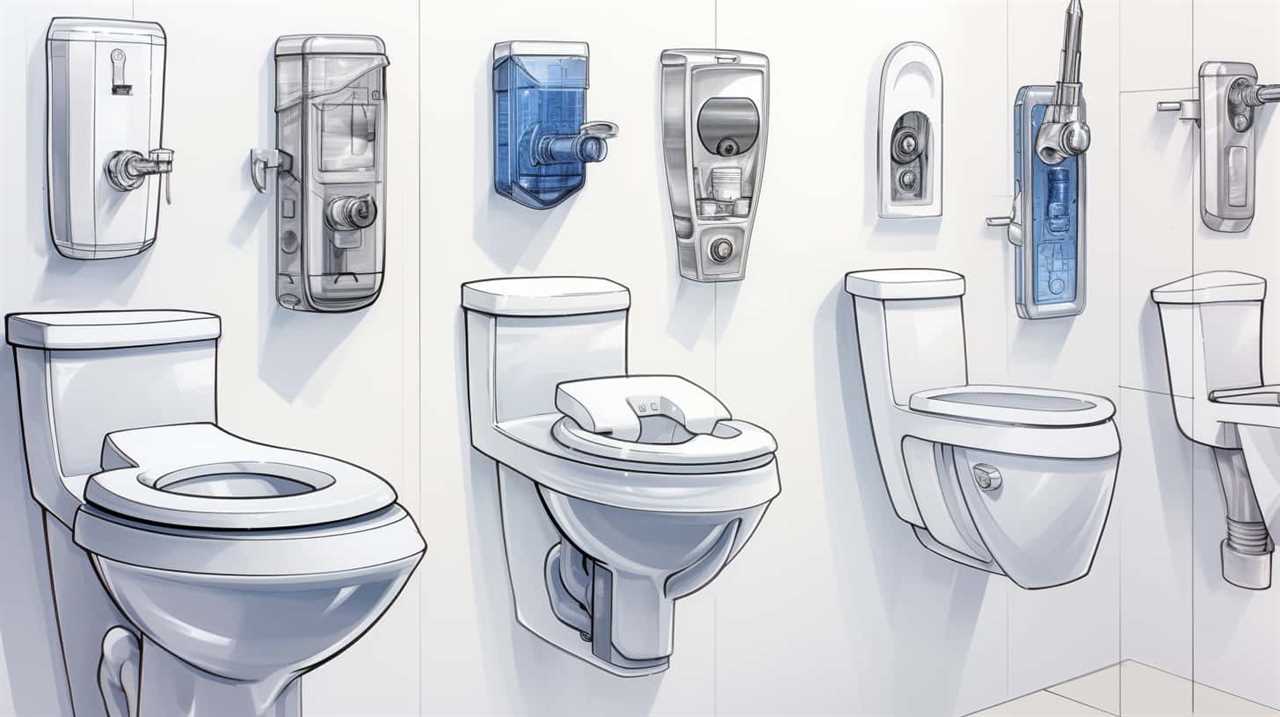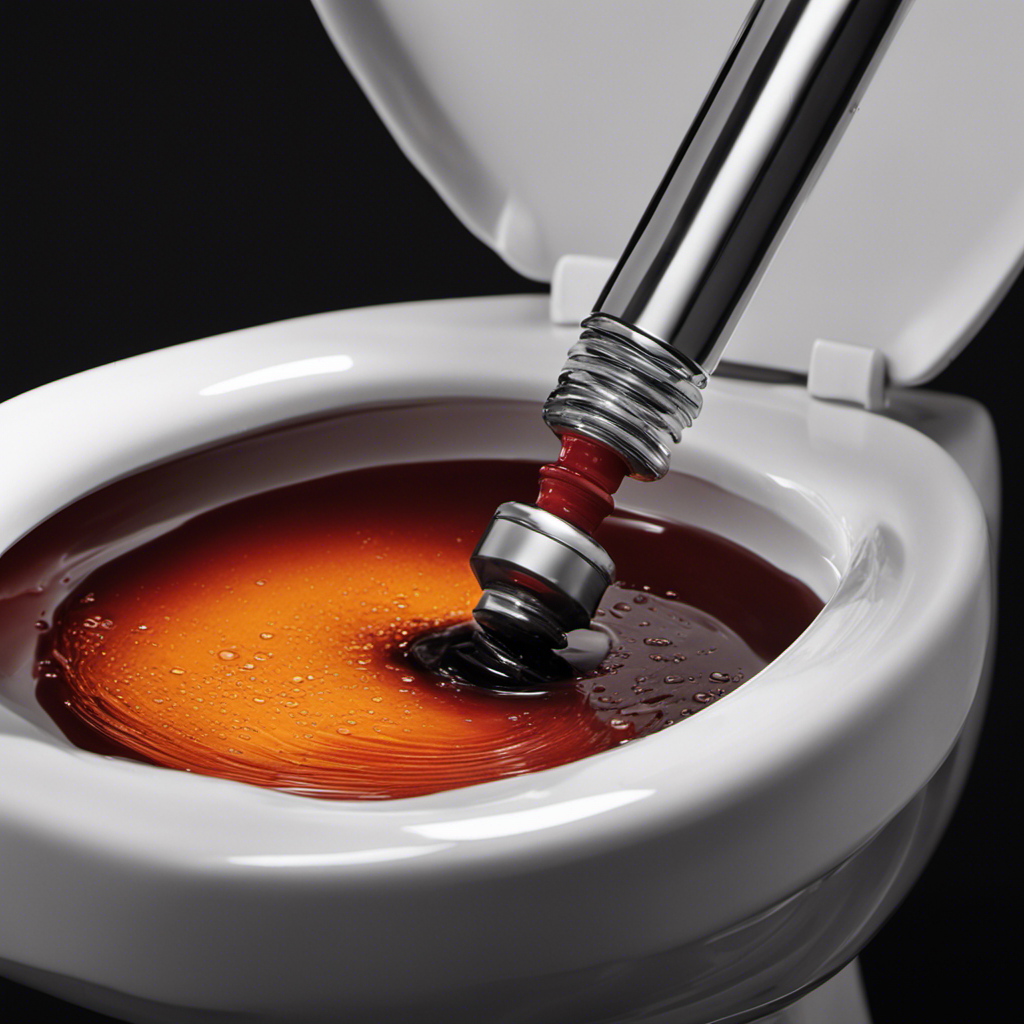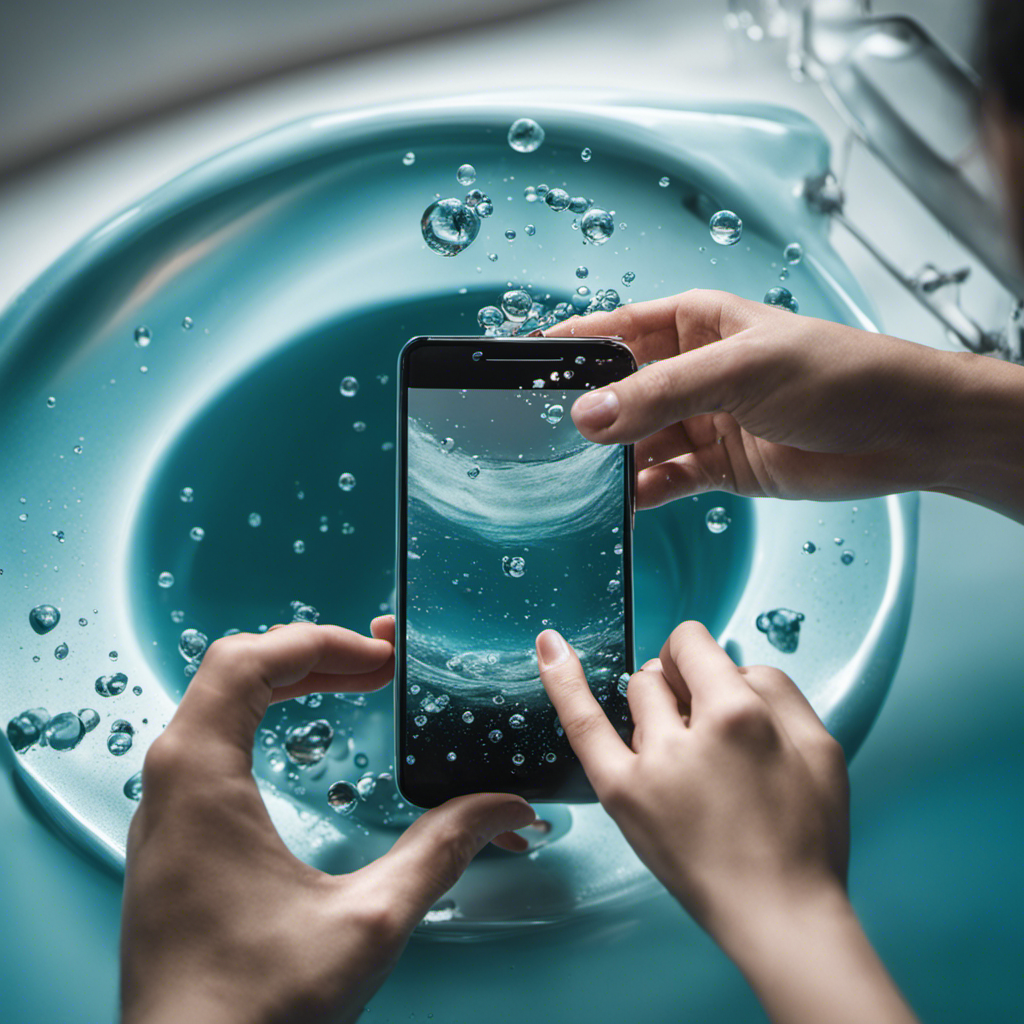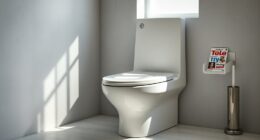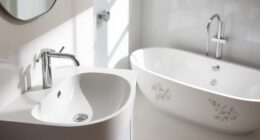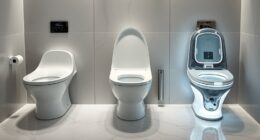We’ve all experienced it – dealing with a blocked toilet and questioning the cause. Despite common belief, a single flushable wipe can actually cause pipe blockages.
In this article, we’ll dive into the technicalities and explore the composition of these seemingly innocent wipes. With our expert knowledge, we’ll uncover the impact of flushable wipes on plumbing systems and share tips on preventing clogs.
Get ready to master the art of keeping your pipes clear and flowing smoothly.
Key Takeaways
- Flushable wipes can cause clogs in pipes and sewer systems.
- Proper disposal in the trash can minimize environmental impact.
- Flushable wipes don’t disintegrate like toilet paper.
- Safer alternatives to flushable wipes include toilet paper and bidets.
The Misconception of Flushable Wipes
Many people mistakenly believe that flushable wipes can be safely disposed of in the toilet without causing any issues. However, this is a common misconception that can have significant consequences.
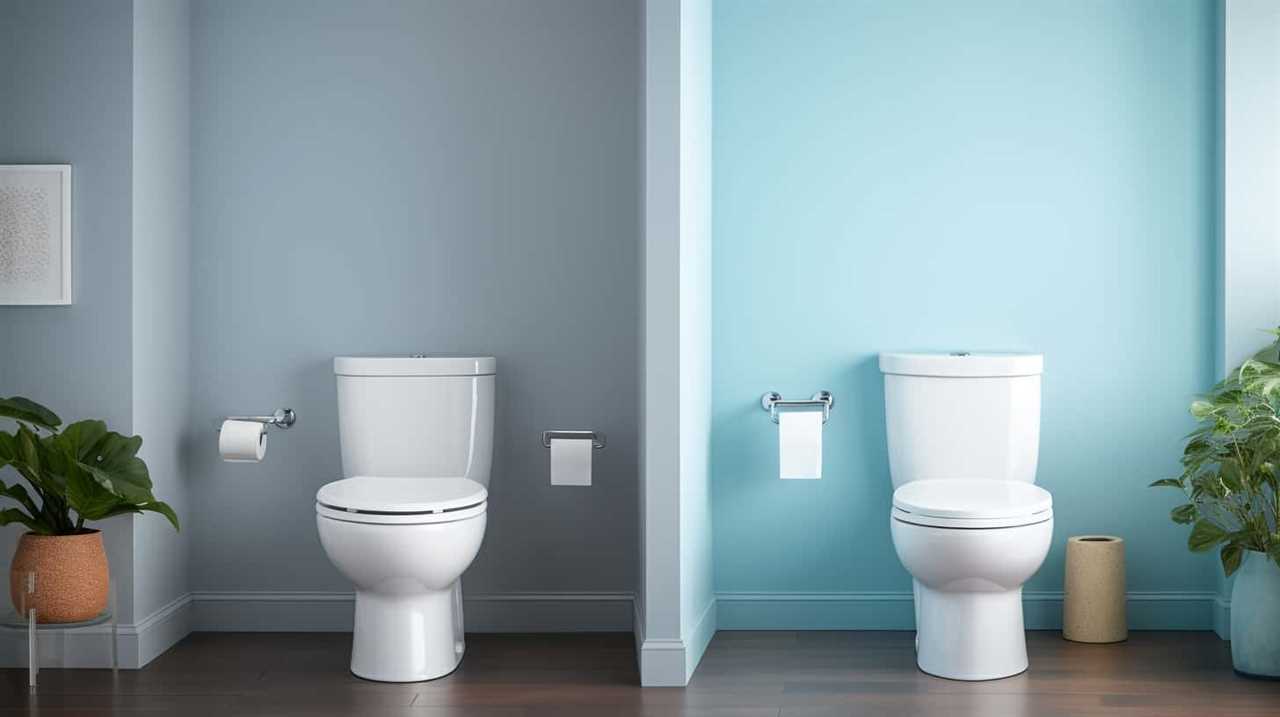
The environmental impact of flushable wipes is a major concern. Despite being marketed as ‘flushable,’ these wipes don’t disintegrate like toilet paper and can clog pipes and sewer systems.
The marketing strategies of flushable wipe manufacturers often play a role in perpetuating this misconception. They emphasize convenience and cleanliness, while downplaying the potential harm to plumbing and the environment.
It’s important for consumers to be aware of the truth behind the marketing claims and to dispose of these wipes properly in the trash, rather than flushing them. This simple change in behavior can help minimize the environmental impact and prevent costly plumbing issues.
Understanding the Composition of Flushable Wipes
In our investigation of the potential risks associated with flushable wipes, it’s crucial to understand the composition of these products.
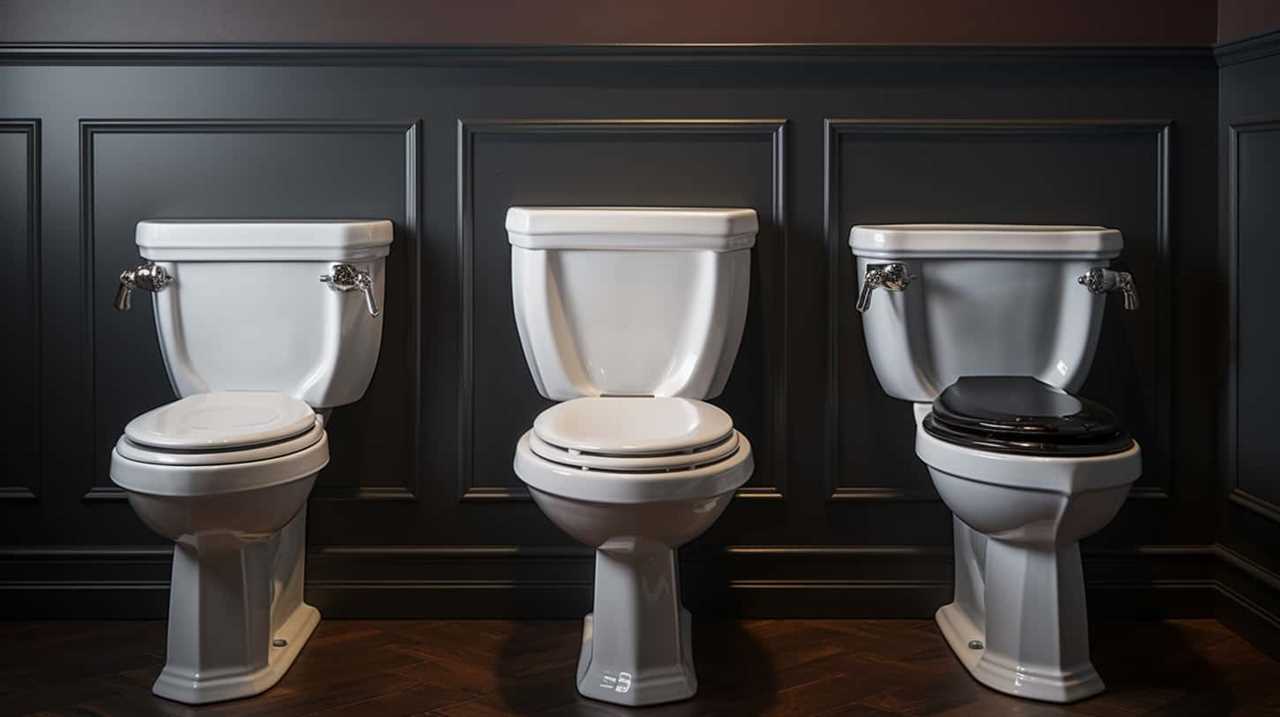
Flushable wipes are made up of a combination of materials such as cellulose fibers, synthetic fibers, binders, and water. These materials are designed to provide a soft and durable cleaning experience.
However, it’s important to note that even though they’re marketed as ‘flushable,’ they can still have a significant environmental impact. Unlike toilet paper, which is designed to break down quickly when flushed, flushable wipes don’t disintegrate as easily.
This can lead to issues such as clogged pipes and sewer blockages, which can be costly to repair and harmful to the environment.
As a result, it’s advisable to consider alternatives to flushable wipes, such as using toilet paper or investing in bidets, which are more eco-friendly options.
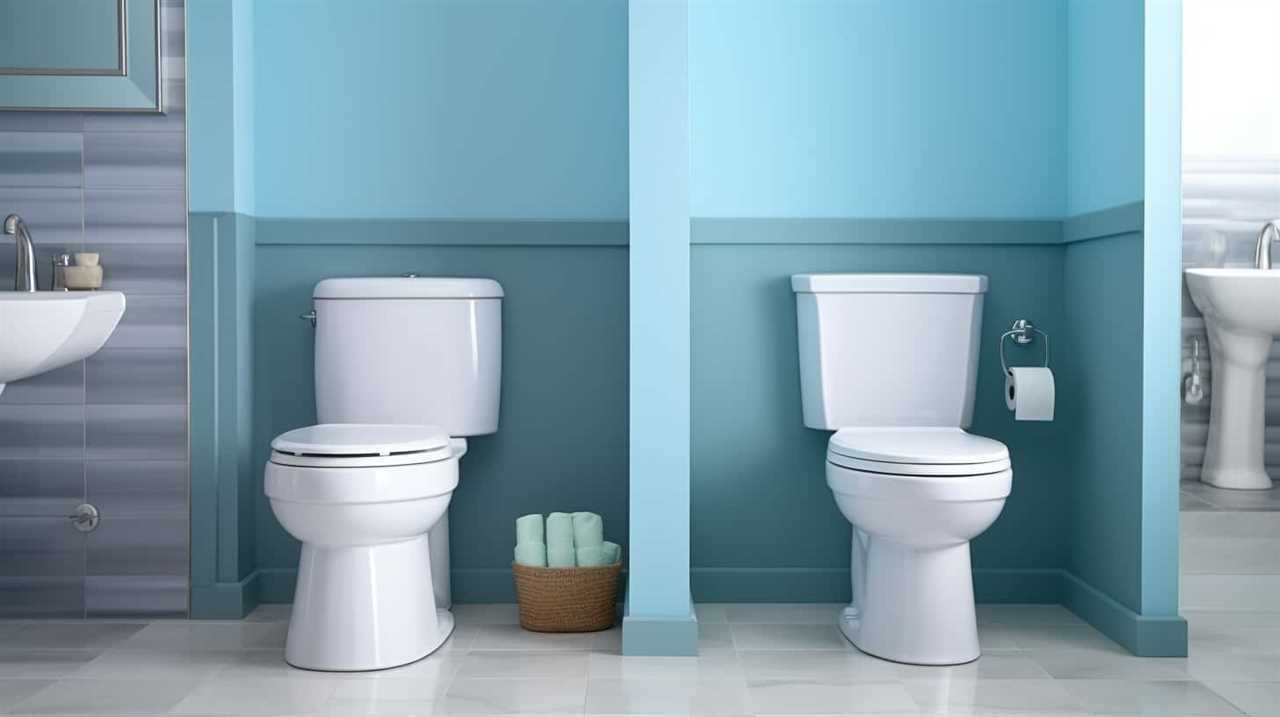
The Impact of Flushable Wipes on Plumbing Systems
How do flushable wipes really affect our plumbing systems?
Flushable wipes may seem convenient and harmless, but they can have a significant impact on plumbing systems. While they may be labeled as ‘flushable,’ these wipes don’t break down like toilet paper and can easily clog pipes. The fabric used in flushable wipes is durable and can resist disintegration, leading to blockages in pipes and sewer systems. This can result in costly repairs and maintenance for homeowners and municipalities.
Moreover, the environmental impact of flushable wipes is significant. They can contribute to sewer system overflows and can also end up in water bodies, causing pollution and harm to aquatic life.
As an alternative to flushable wipes for personal hygiene, it’s recommended to use toilet paper or biodegradable wet wipes that are specifically designed to break down in water. These options are more environmentally friendly and less likely to cause plumbing issues.
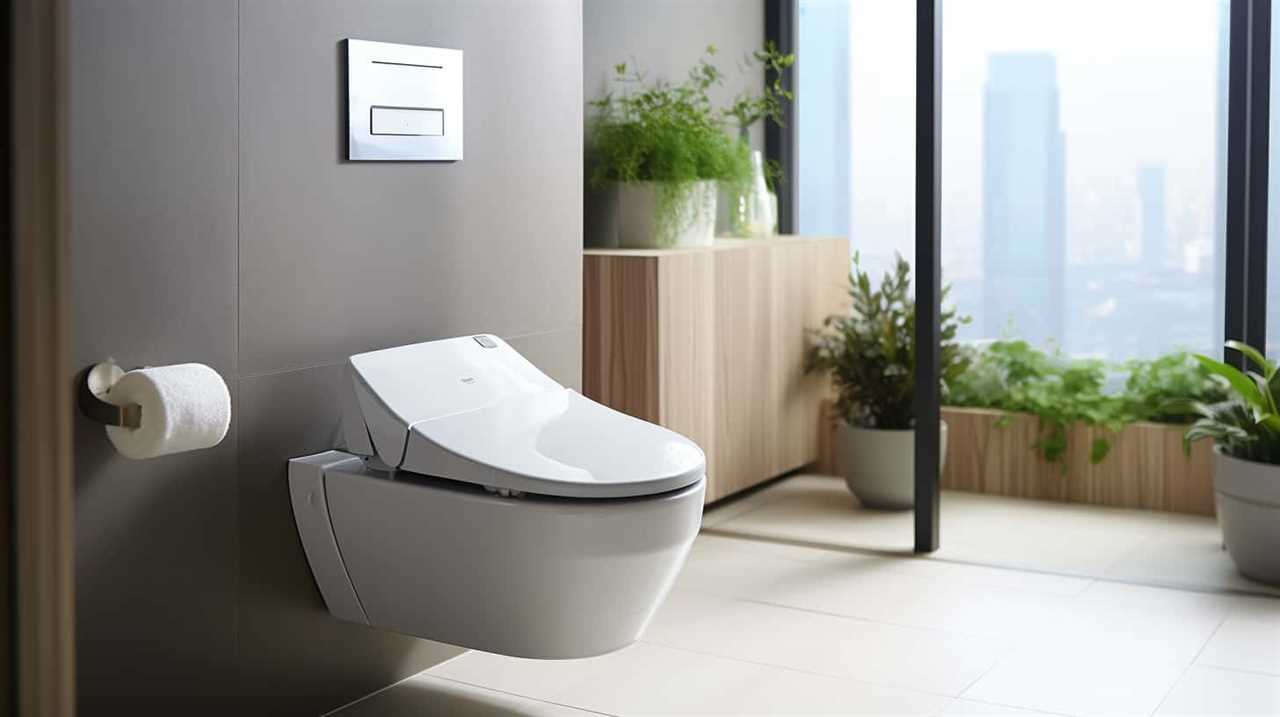
Common Plumbing Issues Caused by Flushable Wipes
Flushable wipes can frequently cause common plumbing issues such as clogged pipes and sewer system backups. Here are four specific problems that can arise from using flushable wipes:
- Pipe blockages: Flushable wipes don’t break down like toilet paper, leading to the accumulation of wipes in the pipes. This can result in blockages that restrict water flow and cause toilets to overflow.
- Sewer system backups: When flushed down the toilet, flushable wipes can accumulate in the sewer system, causing backups and potentially damaging the infrastructure. This can lead to costly repairs and disruptions in the community.
- Environmental impact: Despite their name, flushable wipes can have a negative environmental impact. They can contribute to clogs in wastewater treatment systems, leading to increased energy usage and pollution. Additionally, the materials used in flushable wipes may take a long time to decompose, further impacting the environment.
- Safer alternatives: To avoid plumbing issues, it’s recommended to use alternatives to flushable wipes, such as toilet paper or bidets. These options are more easily broken down and don’t pose the same risks to plumbing systems.
Preventing Clogs and Protecting Your Pipes
To prevent clogs and protect our pipes, we need to take proactive measures. One important aspect of maintaining a healthy plumbing system is proper septic tank maintenance. Regular pumping and inspection of the septic tank can help prevent clogs and backups caused by the accumulation of waste and debris.
It’s also essential to use eco-friendly alternatives to flushable wipes. While the term ‘flushable’ may suggest that these wipes can be safely disposed of in toilets, they can still cause clogs and damage to pipes. Instead, opt for toilet paper that’s designed to break down easily in water.
Additionally, educating ourselves and our households about what can and can’t be flushed down the toilet can go a long way in preventing clogs and protecting our pipes.
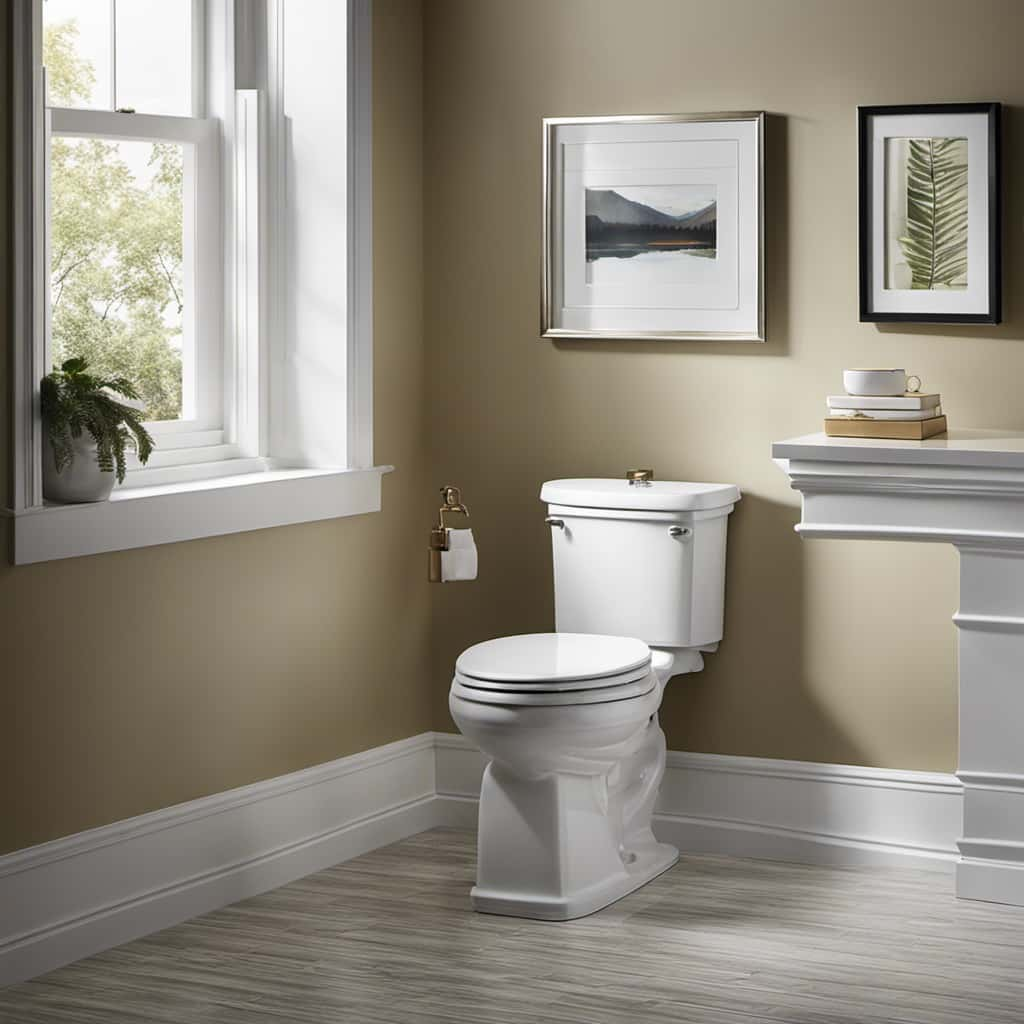
Frequently Asked Questions
Are All Flushable Wipes Truly Flushable?
All flushable wipes are not truly flushable. They can cause clogs in pipes and have a negative environmental impact. We recommend using alternatives such as biodegradable toilet paper or bidets for a more sustainable option.
How Do Flushable Wipes Differ From Regular Toilet Paper in Terms of Composition?
Flushable wipes differ from regular toilet paper in terms of composition. While regular toilet paper is designed to break down quickly, flushable wipes are typically made of synthetic fibers that take longer to biodegrade and can potentially clog pipes.
Can Flushable Wipes Cause Long-Term Damage to Plumbing Systems?
Flushable wipes can cause long-term damage to plumbing systems due to their composition and tendency to clump together. The environmental impact of flushable wipes is significant, making it crucial to explore alternatives for personal hygiene that are more sustainable.
Are There Any Warning Signs That Indicate a Potential Clog Caused by Flushable Wipes?
Warning signs of potential damage from flushable wipes include slow drainage, gurgling sounds, and foul odors emanating from drains. These indicators suggest a clog caused by wipes and should be addressed promptly to prevent further plumbing issues.

Are There Any Specific Measures That Can Be Taken to Prevent Clogs Caused by Flushable Wipes?
Preventive measures for avoiding clogs caused by flushable wipes include disposing of them in the trash, using a bidet or wet wipes specifically designed for flushing, and educating others on the potential risks.
Conclusion
In conclusion, it’s clear that flushable wipes can indeed cause clogs in pipes. Despite the misleading label of ‘flushable,’ these wipes contain materials that don’t easily break down. This leads to blockages and costly plumbing issues.
To protect your pipes and prevent clogs, it’s crucial to dispose of wipes in the trash instead of flushing them. Taking this precaution will ensure the smooth flow of your plumbing system and save you from unnecessary headaches.




